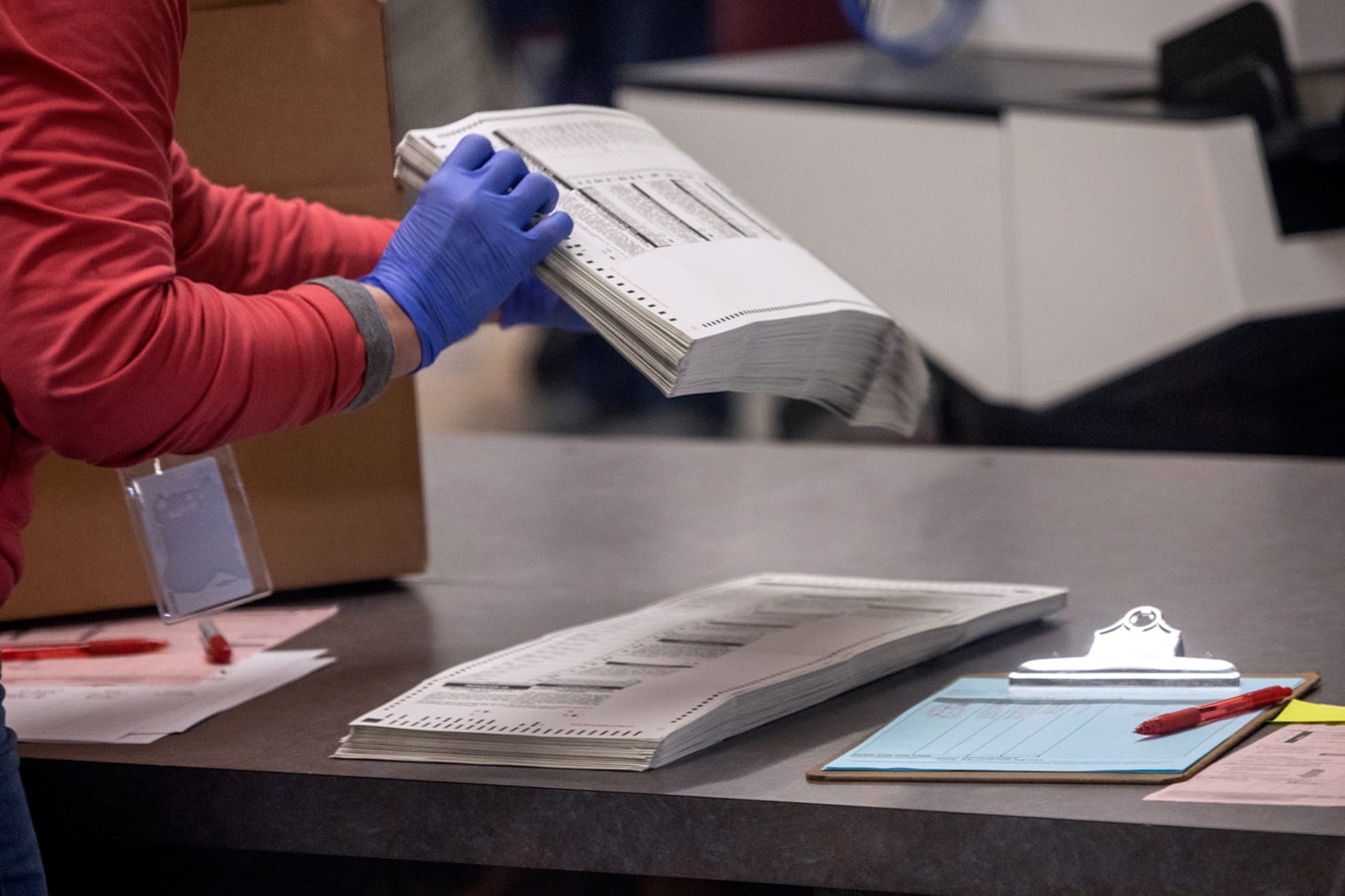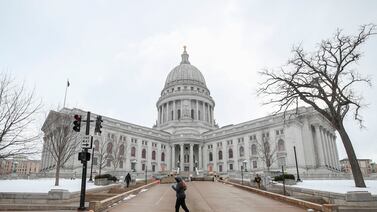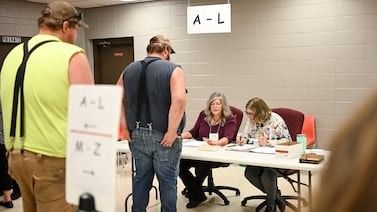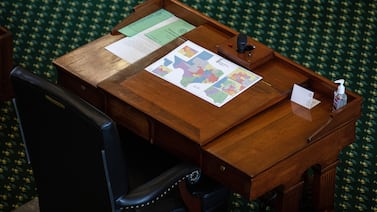Votebeat is a nonprofit news organization reporting on voting access and election administration across the U.S. Sign up for our free newsletters here.
Election officials in Arizona are pushing Democratic Gov. Katie Hobbs and state lawmakers to hold a special legislative session to correct what they see as a potentially impossible timeline for next year’s presidential election resulting from new federal and state laws.
County election directors and officials with the Arizona Association of Counties have been meeting with Hobbs’ staff and Republican legislative leaders, asking them to convene a special session by mid-November to consider fixes such as moving up the primary election date, condensing the timeline for counting and recounting ballots, and changing certification deadlines, Jen Marson, AACO’s executive director, told Votebeat on Wednesday.
Republican legislative leaders said in statements on Wednesday that they will work in coming months to address the issue. House Speaker Ben Toma has told AACO that the issue will be expedited during the regular session beginning in early January, likely in a concurrent special session, according to House spokesperson Andrew Wilder. A concurrent special session would allow lawmakers to address it quickly.
If the timeline is not fixed before the election cycle begins, the election directors warned in a Sept. 11 letter first reported by the Washington Post, any statewide recount in the primary election could result in military and overseas voters not getting their ballots on time. And any statewide presidential recount in the general election could mean that the state misses the federal deadline to send in the state’s presidential electors.
Coconino County Elections Director Eslir Musta said without a change for the general election, “quite frankly I don’t see a path forward in meeting the statutory deadline.”
So far, Marson said, the leaders they have spoken with have understood the timeline is a problem — but that doesn’t mean that the state’s divided leadership will be willing to consider the same solutions.
In a pair of news releases Wednesday, the Republican chairs of legislative election committees, state Sen. Wendy Rogers and state Rep. Jacqueline Parker, pledged to meet with election officials and others over the next few months to come up with a solution to the problem, which they called “urgent election deadline discrepancies.” But while Marson said simple calendar adjustments might offer the best fix, the lawmakers indicated they see this as an opportunity to make wholesale changes to election policy — something that Hobbs isn’t likely to entertain, considering her vetoes of election bills last legislative session.
“Our objective is to address the root of the problem,” Rogers wrote, “rather than simply treat the symptoms. … A true legislative fix will provide clarity, promote transparency, and will save taxpayer dollars.”
Marson and election directors that lead the Election Officials of Arizona met with Parker and Rogers on Wednesday afternoon to discuss the problem further. Waiting until January to consider legislative fixes means that any legislation would need an emergency provision to take effect in time for the primary election.
The troublesome timeline in 2024 stems from two changes: a new recount law in Arizona enacted in 2022 that was always expected to cause problems, and especially likely to drag out finalizing primary election results, but wasn’t yet in effect for 2022’s primary, and a new federal law hardening presidential election deadlines that would affect the 2024 general election.
The changes are likely on a crash course, the election directors warn.
The new recount law widened the margin of votes that triggers an automatic recount, and is expected to trigger a time-consuming statewide recount every election.
The directors have said they will likely need to start designing ballots for the general election, which rely on the primary results, before any primary recount results are final. The current timeline gives only four days for designing, proofing, and printing ballots. Musta said that typically takes weeks, including a state law-required 5-day proofing period for candidates and political parties.
“What worries me with the timeline is it doesn’t give you enough time to proof and reproof and create the checks and balances in our system to make sure that the end product is correct and it’s not rushed,” Musta said.
For the general election, any presidential recount results will need to be final before Dec. 11 for a federal deadline related to the casting of electoral votes. In 2022, half of counties weren’t done with statewide recounts at that point, and statewide recount results weren’t final until Dec. 29.
Marson said that elections directors began to realize this problem with the general election timeline as they prepared their 2024 election calendars this summer. By September, she said, they had agreed it was a universal problem.
Jen Fifield is a reporter for Votebeat based in Arizona. Contact Jen at jfifield@votebeat.org .






